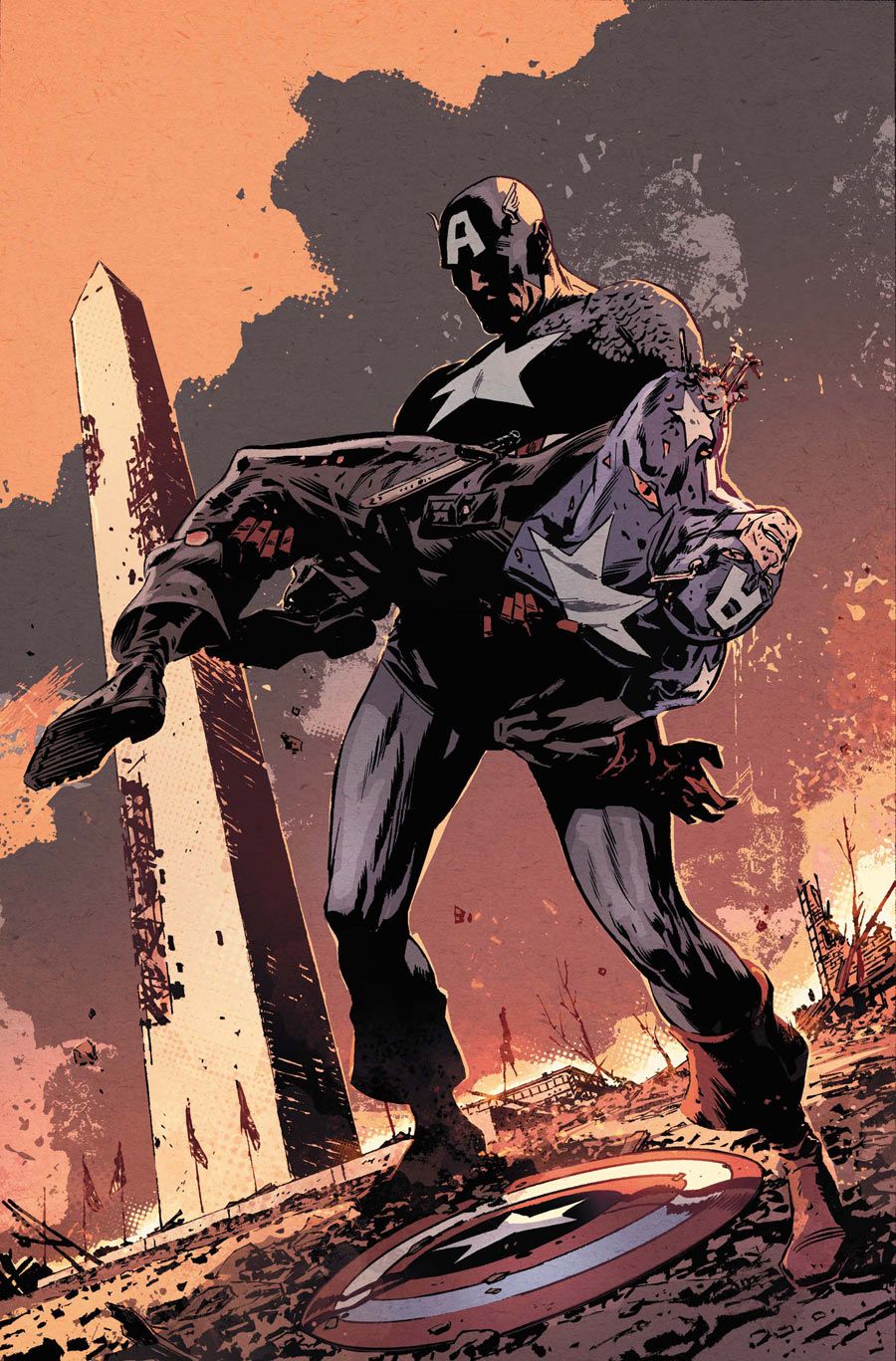The conclusion to "Fear Itself" was -- to put it charitably -- not entirely satisfying. This was mostly because the story dissolved into a montage of lead-ins for tenuously-related books, dropping its own main characters (the big three Avengers) like a trio of hot potatoes.
It's perhaps understandable, though, when you consider that Marvel planned to put out three dedicated 'point' issues which would wrap up the "Fear Itself" plot threads for Cap, Thor, and Iron Man respectively. Indeed, if you believe Marvel's increasingly wacky numbering system, these are all part of "Fear Itself" rather than their parent titles. (Though, er, let's wait and see where they end up collected, shall we?)
All of which is a roundabout way of saying that name, numbering and residual ill will aside, this comic is a "Fear Itself" epilogue starring Captain America.
As it turns out, the connection to "Fear Itself" is rather minimal. It feels like a one-shot, not a continuation. Those who skipped the event will get all the details they need to fill in the important backstory: that Bad Stuff Happened, and in the midst of it, Bucky was killed. This comic is about what happens afterwards, when the dust has settled.
Although Cap's grief wasn't really explored in the main series, we get it pretty heavily here, and in a very satisfying way. Brubaker and Guice are, at this point, a well-oiled "Captain America"-producing machine, and from the very first page you feel that the pair have an understanding of Rogers that is virtually unmatched in the character's history. But this isn't just more of the same -- this is a Steve Rogers with some bite to him. The cool, analytical Captain America of the Brubaker era has been through the wringer, and there's a sense that he reacts very differently to the events we see than the Cap of the "Civil War" era would. In that way, Brubaker and Guice are like masterful directors, encouraging a new performance from their lead actor.
However, technical brilliance aside, the real reason to buy this book is the wickedly huge status quo twist which occurs in it. I won't spoil the revelation (it's out there if you want to know it) but if you aren't yet aware, get away from the Internet and go and buy the issue immediately. If nothing else, Marvel deserves kudos for keeping the shock quiet (by which I mean it wasn't just that I'd managed to avoid it, I wasn't even expecting one). In a world where every comic is hyped to death, it's tough to heap enough praise on the experience of being genuinely surprised, and this comic offered that.
So as it turns out, this isn't really an epilogue, but a prologue. It answers questions that maybe you didn't know you even wanted to ask. And if it turns one of the more gratuitous moments of "Fear Itself" into a success, well, it's hard to complain about that. Could it have been a scene in Fear Itself #7? Yes. But much against my expectations, I have to admit it was better to do it this way.

